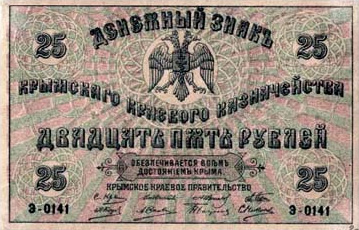Crimea During The Russian Civil War on:
[Wikipedia]
[Google]
[Amazon]
 Between 56,000 and 150,000 of the Whites were murdered as part of the
Between 56,000 and 150,000 of the Whites were murdered as part of the
Crimea
Crimea, crh, Къырым, Qırım, grc, Κιμμερία / Ταυρική, translit=Kimmería / Taurikḗ ( ) is a peninsula in Ukraine, on the northern coast of the Black Sea, that has been occupied by Russia since 2014. It has a pop ...
in the five years after the Russian Revolution
The Russian Revolution was a period of Political revolution (Trotskyism), political and social revolution that took place in the former Russian Empire which began during the First World War. This period saw Russia abolish its monarchy and ad ...
had a large number of governments culminating in being a stronghold of anti-Communist forces and the place on Russian soil where they made their last stand.
Following the Russian Revolution of 1917
The Russian Revolution was a period of political and social revolution that took place in the former Russian Empire which began during the First World War. This period saw Russia abolish its monarchy and adopt a socialist form of government ...
, the military and political situation in Crimea
Crimea, crh, Къырым, Qırım, grc, Κιμμερία / Ταυρική, translit=Kimmería / Taurikḗ ( ) is a peninsula in Ukraine, on the northern coast of the Black Sea, that has been occupied by Russia since 2014. It has a pop ...
was chaotic like that in much of Russia. During the ensuing Russian Civil War
, date = October Revolution, 7 November 1917 – Yakut revolt, 16 June 1923{{Efn, The main phase ended on 25 October 1922. Revolt against the Bolsheviks continued Basmachi movement, in Central Asia and Tungus Republic, the Far East th ...
, Crimea changed hands numerous times and was for a time a stronghold of the anti-Bolshevik White Army
The White Army (russian: Белая армия, Belaya armiya) or White Guard (russian: Бѣлая гвардія/Белая гвардия, Belaya gvardiya, label=none), also referred to as the Whites or White Guardsmen (russian: Бѣлогв� ...
. It was in Crimea that the White Russians led by General Wrangel
Baron Pyotr Nikolayevich Wrangel (russian: Пётр Никола́евич барон Вра́нгель, translit=Pëtr Nikoláevič Vrángel', p=ˈvranɡʲɪlʲ, german: Freiherr Peter Nikolaus von Wrangel; April 25, 1928), also known by his ni ...
made their last stand against Nestor Makhno
Nestor Ivanovych Makhno, The surname "Makhno" ( uk, Махно́) was itself a corruption of Nestor's father's surname "Mikhnenko" ( uk, Міхненко). ( 1888 – 25 July 1934), also known as Bat'ko Makhno ("Father Makhno"),; According to ...
and the Red Army
The Workers' and Peasants' Red Army (Russian: Рабо́че-крестья́нская Кра́сная армия),) often shortened to the Red Army, was the army and air force of the Russian Soviet Federative Socialist Republic and, after ...
in 1920. When resistance was crushed, many of the anti-Bolshevik fighters and civilians escaped by ship to Istanbul
Istanbul ( , ; tr, İstanbul ), formerly known as Constantinople ( grc-gre, Κωνσταντινούπολις; la, Constantinopolis), is the List of largest cities and towns in Turkey, largest city in Turkey, serving as the country's economic, ...
.
Approximately 50,000 White prisoners of war and civilians were summarily executed by shooting or hanging after the defeat of General Wrangel at the end of 1920. This is considered one of the largest massacres
A massacre is the killing of a large number of people or animals, especially those who are not involved in any fighting or have no way of defending themselves. A massacre is generally considered to be morally unacceptable, especially when per ...
in the Civil War.Nicolas Werth, Karel Bartosek, Jean-Louis Panne, Jean-Louis Margolin, Andrzej Paczkowski, Stephane Courtois, ''Black Book of Communism: Crimes, Terror, Repression'', Harvard University Press
Harvard University Press (HUP) is a publishing house established on January 13, 1913, as a division of Harvard University, and focused on academic publishing. It is a member of the Association of American University Presses. After the retirem ...
, 1999, hardcover, page 100, . Chapter 4: ''The Red Terror''
 Between 56,000 and 150,000 of the Whites were murdered as part of the
Between 56,000 and 150,000 of the Whites were murdered as part of the Red Terror
The Red Terror (russian: Красный террор, krasnyj terror) in Soviet Russia was a campaign of political repression and executions carried out by the Bolsheviks, chiefly through the Cheka, the Bolshevik secret police. It started in lat ...
, organized by Béla Kun
Béla Kun (born Béla Kohn; 20 February 1886 – 29 August 1938) was a Hungarian communist revolutionary and politician who governed the Hungarian Soviet Republic in 1919. After attending Franz Joseph University at Kolozsvár (today Cluj-Napoc ...
.
Crimea changed hands several times over the course of the conflict and several political entities were set up on the peninsula. These included:
References
* {{Crimea-stub